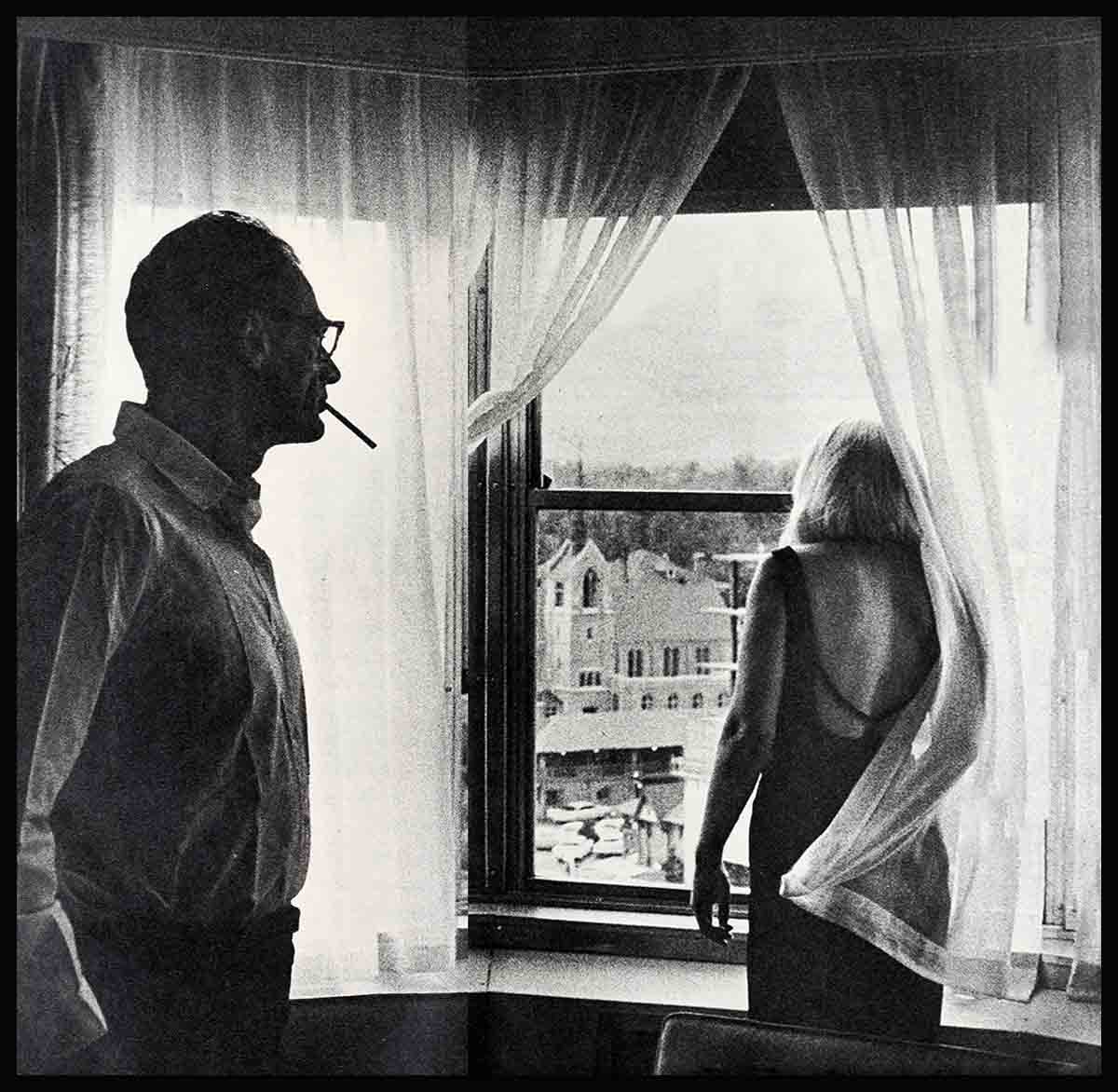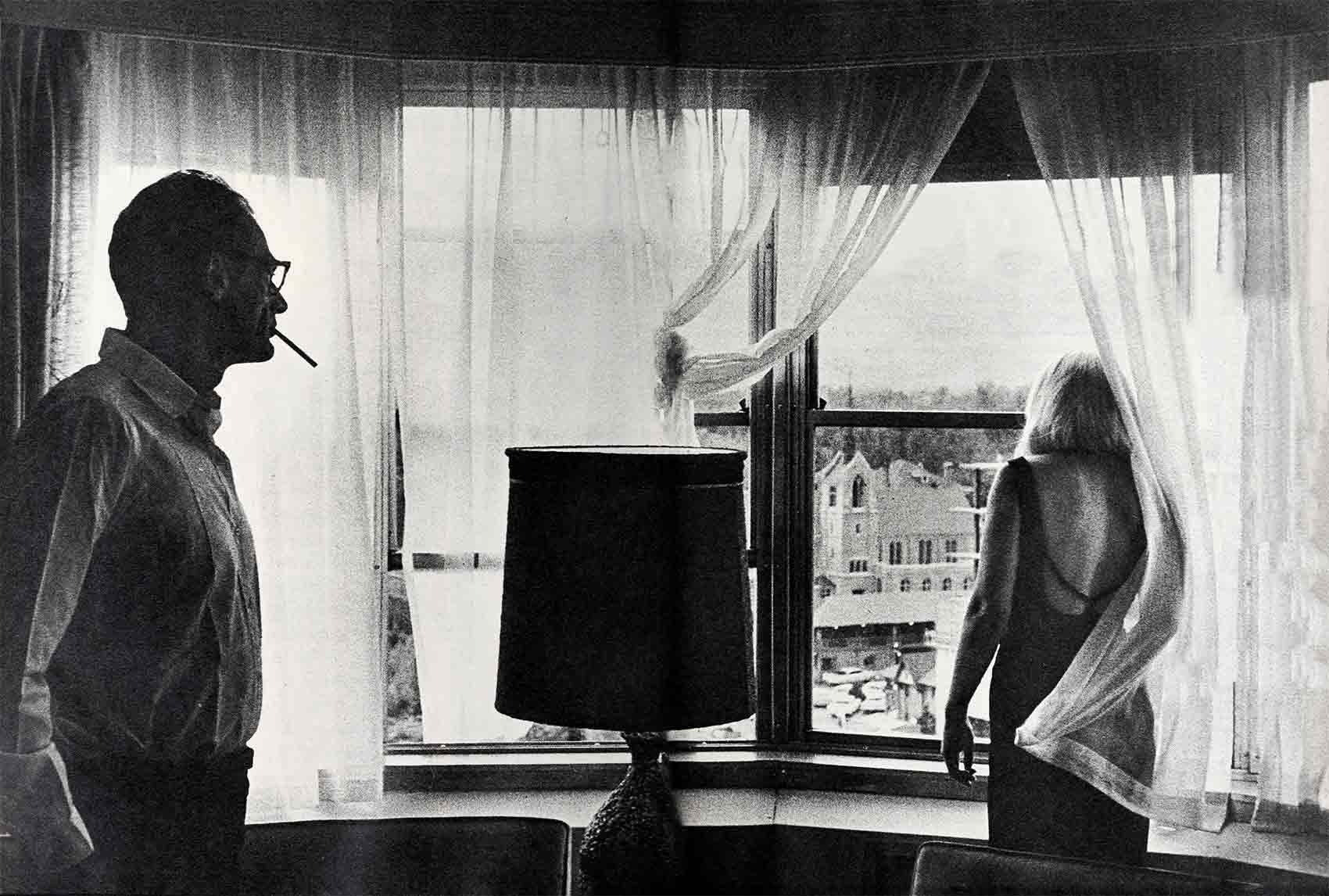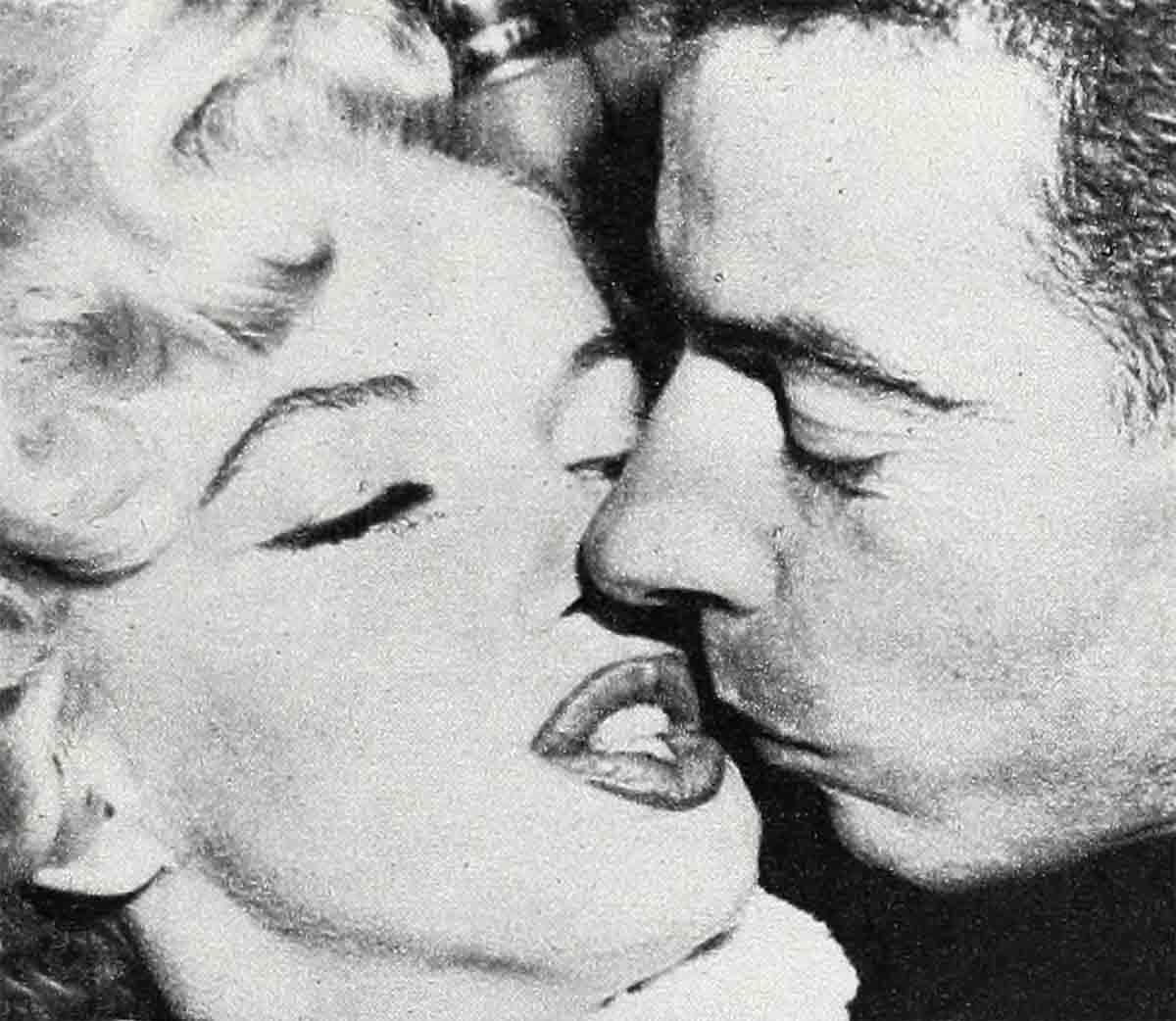
Now That Marilyn’s Turned Her Back On Arthur
Eight years ago, when Marilyn Monroe, a struggling young Hollywood actress, was asked by a friend if she would like to meet the great Joe DiMaggio, she simply asked: “Who is he?”
And, at first, she even refused to meet him. Not that there was another love interest in her life. There wasn’t. Marilyn was, however, going through another of several crises in her life. She felt her career was not progressing in the way she wanted, which meant she wanted better parts, and she was on the verge of taking a suspension from the studio, something which she later did.
When finally Joe and she did meet, in the company of another couple, Marilyn made it plain that she found Joe dull and uncommunicative. And he was. He was so entranced and so conscious of her beauty that, as the friends later confided, “he could do nothing more than look at her. In the course of the whole evening, Joe probably didn’t say more than a sentence or two, neither of which revealed his deep feelings.”
As the weeks passed following their first meeting, Marilyn saw Joe from time to time and slowly got to like “his shy, quiet ways.” But it hardly looked like a budding romance. For one thing, they had little in common and their backgrounds couldn’t have been more different. Joe disliked publicity, and Marilyn, on the other hand, needed publicity to live. It was all part of a substitution for the family she never had, for the years of being shunted from one foster home to another, for the two years spent in an orphanage across the street from the RKO studios where her mother, who has been in a mental institution since Marilyn was a baby, used to work as a film cutter.

“I used to lie awake nights,” she once supposedly told a friend, “watching those lights on the studio, blinking on and off, on and off, and dream that one day I’d be a star and everybody—just everybody—would love me.” To her, stardom, adoration, publicity meant love, devotion, being wanted. Learning about music, literature, culture—these things were important, she didn’t know how to explain to Joe why, they just were. And if he had no pretentions toward those things—well.
But in spite of their differences, they seemed drawn to each other. Joe found her beautiful, but more important than that, he found her desperately in need of help. For Marilyn, Joe’s large, friendly family and his background seemed what she always imagined she had missed and should have had. She learned Joe was “someone who could be trusted,” and she felt there had been few people in her life who had extended trust to her.
Marilyn was pleased to learn that “just everybody seemed to know Joe.” She was pleased when kids begged him for autographs, when photographers snapped them dining, when a sportscaster told her “Joe was one of the greatest athletes of all time.” And in time, Marilyn came to feel that Joe was indeed her hero, too. She had yet to become a star.
Then, when Marilyn played Loreli Lee in “Gentlemen Prefer Blondes,” and Joe visited the set, he and a photographer were kept waiting for three hours—getting a taste of the even-then legendary Monroe tardiness. He was so furious they had their first serious argument. She protested they were not married yet, that he had no right to tell her what to do. He answered by walking out of her dressing room and slamming the door, never to visit her on a set again.

They made up, and when Marilyn went on suspension from the studio until she got better roles, she and Joe were married and flew to Japan for a honeymoon. When they landed in Japan, they were mobbed by hysterical fans, who pulled, screamed and tore at her clothing. It took two and a half hours to get from the plane to the waiting car, long enough for Marilyn to accept from an Army officer aboard the plane a request to entertain American troops in Korea. While Joe stayed behind, Marilyn flew off to become, overnight, a sex symbol the world over. It was the beginning of big stardom for her, and strangely, the beginning of the end of her marriage to Joe.
Nine months later, they made a joint announcement. They agreed to a friendly divorce. Neither she nor Joe could change. There were too many differences, and despite meetings after that, the differences were too great to mend a marriage. They parted, but remained friends. Joe never remarried. Marilyn went on to establish herself as a dramatic actress, to follow her intellectual pretentions, to tone down her publicity and to marry one of the world’s greatest contemporary playwrights and intellectuals. She seemed to have everything. Then, last November, she announced, “Arthur and I will divorce.” Surprising everyone, one of her first dates after she turned her back on this marriage, was with Joe. He took her to a screening of her latest film, “The Misfits.” Ironically as they sat watching the movie together, a few rows away sat Arthur Miller, her estranged husband who had written it for her and had helped her grow into the kind of person she wanted to be. No one knew what he was thinking, but there are many who wonder, as they see Joe and Marilyn dating again, if it isn’t “like old times . . . and if maybe, now, they can make a go of it.”
THE END
—BY JULIA CORBIN
It is a quote. PHOTOPLAY MAGAZINE APRIL 1961





zoritoler imol
1 Ağustos 2023Keep functioning ,fantastic job!